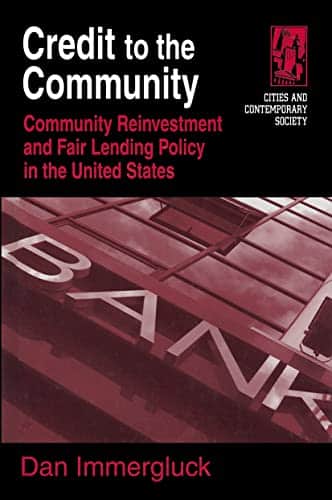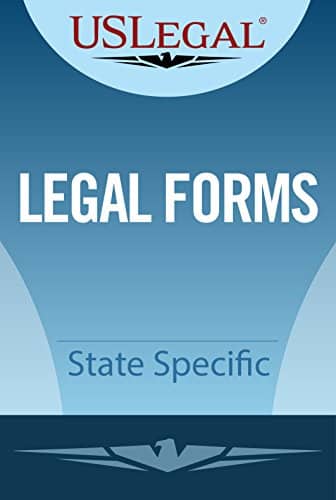Preparing to tackle your mortgage can sometimes feel like you’re trying to outmaneuver a championship team—like navigating Cruz Azul on the field. You’ve got your game plan, you’re in it to win it, and then—bam!—a prepayment penalty could slide-tackle your finances if you’re not careful. But don’t fret; let’s debunk some of those myths and get you playing like an MVP when it comes to your mortgage.
Prepayment Penalties How Do They Affect Your Real Estate Investment

$0.99
Prepayment penalties can have a significant impact on the profitability and flexibility of your real estate investment, acting as a deterrent for paying off your loan early. These fees are stipulated in the lending agreement and are often implemented to ensure that the lender receives a guaranteed return on their investment, in the form of interest payments, over a specified period. For real estate investors looking to refinance or sell their property before the loan’s maturity date, these penalties can reduce the overall financial gain from such transactions. It’s essential for investors to carefully examine loan terms and consider the potential costs of prepayment penalties when formulating their investment strategies.
Understanding the structure of prepayment penalties is crucial in the context of real estate investments. These penalties can be calculated through various methods, such as a percentage of the remaining loan balance, a flat fee, or a sliding scale that decreases over time. Some penalties may also only apply during an initial period, known as a lock-out period, after which the investor can prepay without incurring additional charges. By being well-versed in the prepayment penalty terms, real estate investors can more accurately forecast their investment’s cash flow and exit strategy outcomes.
When evaluating real estate investments, it’s important for investors to weigh the potential implications of prepayment penalties against their investment goals. Those planning on holding properties for rental income over the long term may find these penalties less burdensome, whereas investors seeking to flip properties quickly could find them financially restrictive. Moreover, in a declining interest rate environment, the ability to refinance at a lower rate becomes more attractive, making prepayment penalties a critical factor in the decision-making process. Ultimately, prudent real estate investors will consider prepayment penalties as part of their comprehensive due diligence to ensure a well-informed investment decision.
Understanding Prepayment Penalties: A Primer
You wouldn’t go to a Lady Gaga naked concert without knowing all her hits, right? Similarly, let’s get a grip on what prepayment penalties are before making any moves. They’re fees lenders charge when a borrower pays off their mortgage faster than anticipated. Why do they exist? Because lenders expect to make money on the interest you pay over time, and if you cut that time short, they don’t pocket as much.
Prepayment penalties are most often a feature of the mortgage industry to protect lenders from losing out on that sweet, sweet interest. They’re usually applied under certain conditions, like if you repay the whole loan within a few years of taking it out. But keep reading; it’s not all dad-jeans-and-socks levels of groaning news—there’s even room for a couple of good birthday dad Jokes along the way.

Fact 1: Not All Mortgages Have a Prepayment Penalty
Before you start imagining dollars flying out of your wallet faster than a Jets Qb escaping a sack, hear this: Not all mortgages have a prepayment penalty. Some studies say they’re becoming as rare as seeing someone wear Sketchers slip-ons to a formal event. Various loans are more likely to carry these penalties, typically the ones with better rates or interest-only loans. Over the years, there has been an evolution in how these clauses are drafted—a trend towards transparency and borrower-friendliness.
Credit to the Community Community Reinvestment and Fair Lending Policy in the United States (Cities and Contemporary Society (Hardcover))

$133.00
Credit to the Community: Community Reinvestment and Fair Lending Policy in the United States, part of the Cities and Contemporary Society series in hardcover, is a compelling and insightful resource for readers looking to understand the intersection of finance, social justice, and urban policy. This book delves into the complex world of credit access in American cities and the political and economic forces that shape it. It illuminates the history and impact of the Community Reinvestment Act (CRA) and other related fair lending policies designed to ensure that financial institutions meet the needs of the communities in which they operate, particularly low- and moderate-income neighborhoods.
The text offers a rigorous analysis of the effectiveness of these policies while critically examining the ongoing challenges in combatting discriminatory lending practices. Through a blend of academic study and practical examples, the book reveals how credit allocation affects community development and underscores the importance of equitable financial services in fostering healthy, sustainable urban environments. It provides an in-depth look at the regulatory landscape, highlighting key legislation, regulatory oversight, and the role of banking institutions in community reinvestment.
As a guide for policymakers, urban planners, financial professionals, and activists, Credit to the Community is an essential addition to the discourse on economic inclusivity and the roles of public policy and private capital in shaping it. The book encourages a forward-thinking discourse by presenting recommendations for improving the framework of community reinvestment and fair lending. It is a thought-provoking read that not only charts the progress made so far but also serves as a call to action for continued commitment to financial equity in America’s diverse and evolving cities.
| Aspect | Details |
|---|---|
| Definition | A prepayment penalty is a fee that lenders may charge borrowers for paying off a loan before its due date. |
| Purpose | To compensate the lender for the interest income it will lose due to the early loan payoff. |
| Common in | Mortgages, Auto Loans, Personal Loans |
| Penalty Types | – Soft Prepayment Penalty: Charges only if you refinance or take out a new mortgage. |
| – Hard Prepayment Penalty: Charges for any kind of early payment, whether refinancing or paying in full. | |
| Calculation Basis | – Percentage of the outstanding loan balance |
| – A certain number of months’ interest | |
| Typical Duration | 1 to 5 years from the start of the loan term, depending on the loan agreement. |
| Impact on Borrowers | – Discourages refinancing or early payoff |
| – Can increase the cost of the loan if the borrower decides to pay early | |
| – Can affect sale or refinancing opportunities | |
| How to Avoid | – Shop for loans without prepayment penalties. |
| – Negotiate the penalty terms before signing a loan agreement. | |
| – Pay attention to details in the ‘Truth in Lending Act’ disclosure form. | |
| Legal Limitations | – Varies by state and loan type |
| – Certain states have restrictions or bans on prepayment penalties. | |
| – Federally, the Dodd-Frank Wall Street Reform and Consumer Protection Act restricts the use on residential mortgages. | |
| Alternatives | – Partial prepayments within limits (to avoid triggering penalty) |
| – Wait until the penalty period expires before making full prepayment or refinancing. |
Fact 2: Prepayment Penalties Are Not Always Exorbitant
The word ‘penalty’ might make you think of losing half your hard-earned savings, but hold up—prepayment penalties aren’t always the financial boogeyman under your bed. They can sometimes be just a nominal fee, a percentage of your remaining loan balance, or equivalent to a set number of months of interest. Factors like your loan’s structure, how long you’ve had it, and the original loan amount can all influence the fee. Picture it like this: if paying off your mortgage early is the championship game, the prepayment penalty is the small price for your victory parade.

Fact 3: Prepayment Penalties Can Be Negotiable
Bet you didn’t think you could haggle over a mortgage term like a street vendor bargaining over prices, did you? Well, you can negotiate prepayment penalties. It’s all about how you chat up your lender. Before you sign on the dotted line, discuss it—like you would if you were schmoozing over the last piece of cake. Some borrowers have managed to reduce the penalty or even get rid of it altogether, just by brushing up on their charm and negotiation prowess.
Promissory Note with Installment Payments

$14.95
A Promissory Note with Installment Payments is an essential financial document that outlines a loan’s terms between two parties, where the borrower agrees to pay back the principal amount along with interest in regular intervals. This type of note serves as a binding legal agreement, ensuring the lender a structured and secure method of repayment over a specific period, with stipulated installment amounts and due dates. It clearly lays out any interest rate applied to the principal, which provides both lender and borrower clarity on the total amount to be repaid. The inclusion of an amortization schedule within the note helps both parties track the outstanding balance as payments are made over time.
The Promissory Note with Installment Payments is meticulously designed to offer legal protection and financial predictability. The document enumerates all relevant details such as the identities of the lender and borrower, the loan amount, the interest rate, the schedule of payments, and any penalties for late payments or default. Provisions for early repayment terms or the consequences of missing an installment can also be defined within the note, safeguarding the interests of the involved entities. Its thorough nature makes the note an indispensable tool for private loans, financing agreements, or any situation where a lump sum is to be paid back in increments.
When using a Promissory Note with Installment Payments, both lender and borrower can manage their financial obligations with greater confidence and ease. For the borrower, it offers a clear and manageable plan to fulfill their debt obligations without the pressure of a single lump-sum payment. Meanwhile, lenders benefit from the steady cash flow and the legal recourse provided should the borrower fail to adhere to the agreed terms. Above all, this type of promissory note promotes transparency and trust between parties, facilitating smooth financial transactions and fostering professional relationships.
Fact 4: Prepayment Penalties Have a Time Limit
Nobody’s going to expect you to pay a penalty forever—it’s not an eternal game of tag. There’s a time limit on prepayment penalties, and understanding this can be as satisfying as sliding into those Sketchers slip-ons at the end of a long day. Typically, these penalties phase out after a few years, leaving you free to pay off your loan as you please. This time limit is crucial for planning; you might decide to stick it out before making a big financial play, like refinancing.

Fact 5: Prepayment Doesn’t Always Trigger a Penalty
Here’s a fun fact: making a prepayment—whether that’s a lump sum or just slightly more than your usual amount—doesn’t always wave the red flag at your prepayment penalty bull. Some lenders allow you to pay off a portion (say, 20%) of your loan each year without incurring fees. So, like sneakily snagging an extra slice of birthday cake with a slick line, you can sometimes navigate around penalties with smart planning and partial payments.
The Strategic Implications of Prepayment Penalties on Refinancing
Refinancing is all about timing, like hitting that punchline right for the perfect birthday dad joke. If you’re eyeballing a refi but stuck with a prepayment penalty, it could affect the “when” and “how much” of it all. It’s essential to factor in current refinancing trends and the nitty-gritty prepayment terms, down to the fine print. Doing the math here can show the long-term financial implications—like how much you’ll save on interest versus what you’ll pay in penalties.
Conclusion: The Path Forward Without Prepayment Penalty Worries
Wrapping up our dive into the prepayment penalty pool, here’s the takeaway: not all mortgage contracts have them, they’re not always bank breakers, and often, you can negotiate your way around them. With this playbook in hand, tackle your mortgage terms like you’ve got the financial wisdom of Suze Orman and the investment instincts of Robert Kiyosaki. In a world where the certainties of loan agreements are as up in the air as a Hail Mary play by your favorite jets qb, being informed is your number one defense.
Remember, knowledge is power—more potent than a caffeine boost during halftime. Use what you’ve learned, challenge the status quo, and take control of your mortgage terms like a pro. The landscape may evolve, but with a solid strategy and a dash of courage, you can navigate mortgage terms to your advantage. Now, go forth and conquer those prepayment penalties.
Busting Myths About Prepayment Penalty
Let’s be real—who likes to cough up extra dough when paying off a loan early? That’s right, no one! The truth is, prepayment penalties are like that clingy bit of plastic wrap that just won’t leave you alone after you think you’ve thrown it out. Time to unwrap some of those sticky myths and serve up a dish of cold, hard facts.
No Penalty for Being Ahead of the Game?
First things first, folks, many believe that paying early always comes with a punishment—talk about a party pooper! But hold your horses. Did you know? Some lenders are actually cheerleaders when you bring in the money bags ahead of time. It’s all about reading the fine print or even better, getting the lowdown on your Principal balance to march towards freedom from debt without the extra fees lurking around the corner.
A Pointy Myth: Points Shield You from Penalties
Okay, show of hands—who’s heard the one where paying “Points” upfront can protect you against prepayment penalties? Here’s a twist: while it’s true that points can reduce your interest rate, they aren’t a magic shield. Think of points like an entry fee to the mortgage club, not a get-out-of-jail-free card. You’ve still got to play the game by the rules, and sometimes those rules include pesky prepayment penalties.
One-Size-Fits-All Penalty? As If!
Now, hang on to your Sketchers slip Ons because we’re about to make a quick dash through the facts. Some might have you believe that prepayment penalties are a one-size-fits-all ordeal. But in reality, they’re more like your favorite pair of sneakers: tailored to your situation. Some penalties decrease over time while others might be a fixed fee. Make sure to lace up those details before sprinting towards early payments.
The Penalty Box Isn’t Forever
Here’s a juicy tidbit that’ll have you raising an eyebrow: those daunting prepayment penalties don’t stick around forever. They’re typically only in play for a specific period—usually a few years into your mortgage. After that? You’re as free as a bird! Before signing on that dotted line, get the inside scoop on how long you might be in the penalty box.
Interest-ingly, There’s More…
Alright, we all know someone who’s holier-than-thou about their financial know-how, right? They might tell you that prepayment penalties are only about the principal, but let me spill the tea—it’s not always black and white. Sometimes, these penalties can also be based on the interest payments you would have made if you stayed the course. That’s right, it can get as complicated as trying to fold a fitted sheet, so make sure you’re up to snuff on your loan’s fine print.
So, there you have it, folks—some amusing myth-busting and fact-flinging on the subject of prepayment penalties. Whether you’re navigating these murky waters or just dipping your toes, remember: knowledge is power, and with a bit of savvy, you’ll be skipping all the way to the bank—or at least avoiding stumbling over unnecessary fees. Keep your wits about you, and don’t let those myths hold you back!
What Are Prepayment Penalties And How Do They Affect Your Real Estate Investment

$0.99
Prepayment penalties are stipulations in mortgage contracts that impose a financial penalty on borrowers who pay off their loan before a specified period has ended. This prepayment can be either in part or in full and is often a percentage of the remaining loan balance or a certain number of months’ worth of interest payments. For real estate investors, these penalties are particularly important to consider, as they can significantly affect the profitability and flexibility of an investment. Understanding the specific terms of prepayment penalties can help investors make informed decisions on whether to pay off a loan early, particularly if they are considering selling the property or refinancing the mortgage.
In the context of real estate investment, prepayment penalties can impact the timing and strategy of property flipping or refinancing for a better interest rate. An investor may find a prepayment penalty to be restrictive, as it could eat into the potential profits gained from an early sale during a favorable market. Moreover, if interest rates decrease, a prepayment penalty could deter an investor from refinancing, thereby keeping them locked into a higher interest rate and affecting their return on investment. It is therefore crucial for real estate investors to carefully analyze the loan agreement and weigh the potential costs and benefits of prepaying a mortgage.
When assessing the viability of a real estate investment, the potential impact of prepayment penalties must be carefully factored into the overall financial planning. Investors should seek out mortgages with terms that align with their intended property hold period and exit strategy to avoid unnecessary penalties. Some lenders may offer loan options without prepayment penalties, which could be more conducive to an investors need for liquidity and agility in their investment portfolio. By being aware of and strategizing around prepayment penalties, savvy investors can maximize the financial performance of their real estate investments and avoid unwelcome surprises.



